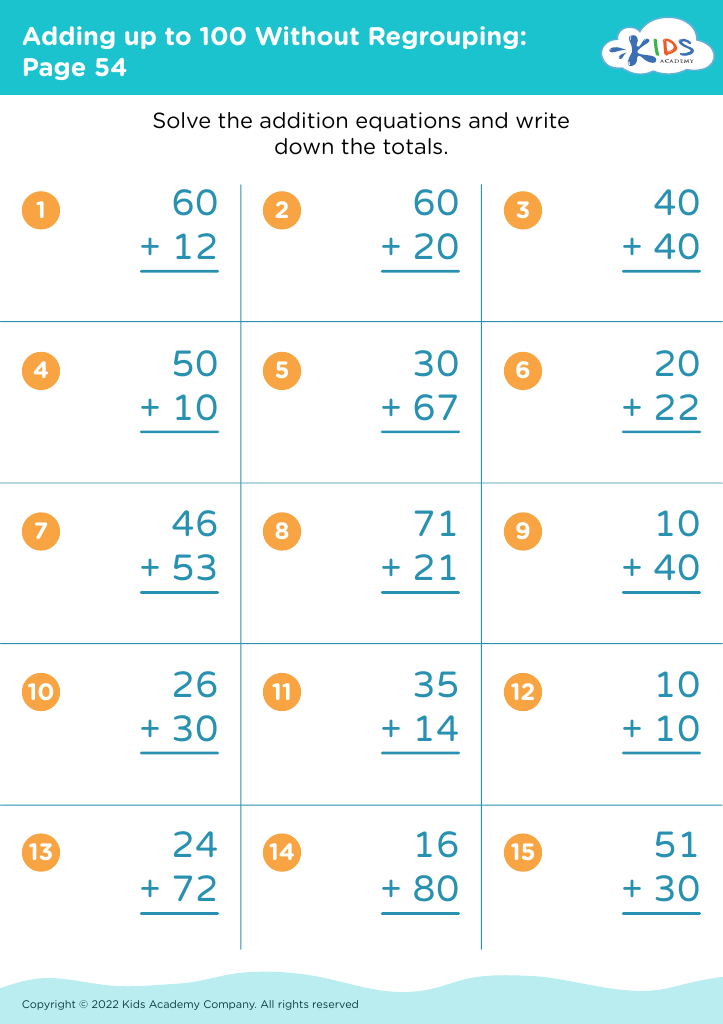Fraction conversion Math Worksheets for Ages 7-9
3 filtered results
-
From - To
Explore our engaging Fraction Conversion Math Worksheets designed specifically for kids aged 7-9! These interactive worksheets help young learners master the concept of converting fractions with ease and confidence. With a variety of fun activities, children will practice converting improper fractions to mixed numbers and vice versa, fostering their understanding of fractions in real-world situations. Whether in the classroom or at home, these worksheets are perfect for reinforcing foundational math skills. Boost your child's math proficiency today by providing them with the essential tools they need to thrive! Join us on the journey to making fraction conversion a breeze for your little ones!
Understanding fraction conversion is crucial for children aged 7-9, as it lays the foundation for essential mathematical skills they'll need throughout their lives. At this age, children are beginning to grasp more complex concepts, and mastering fractions is an integral part of their mathematical development. Fraction conversion introduces them to the relationships between different fractional representations, which helps enhance their problem-solving abilities.
When parents and teachers emphasize the importance of fractions, it encourages students to develop critical thinking skills. These skills are not only applicable in math but also in real-life situations, such as understanding measurements in cooking or splitting items fairly. Additionally, grasping fraction conversion fosters a sense of confidence and motivation, as children see their progress and ability to tackle challenging tasks.
Moreover, early proficiency in fractions directly impacts their performance in higher-grade mathematics concepts, such as ratios, proportions, and algebra. By encouraging comprehension of fraction conversion, parents and teachers equip children with the tools they need to succeed in future mathematical endeavors, ultimately leading to greater academic achievement and a positive attitude towards learning. In sum, a solid understanding of fractions paves the way for lifelong skills and enhances overall cognitive growth.




















